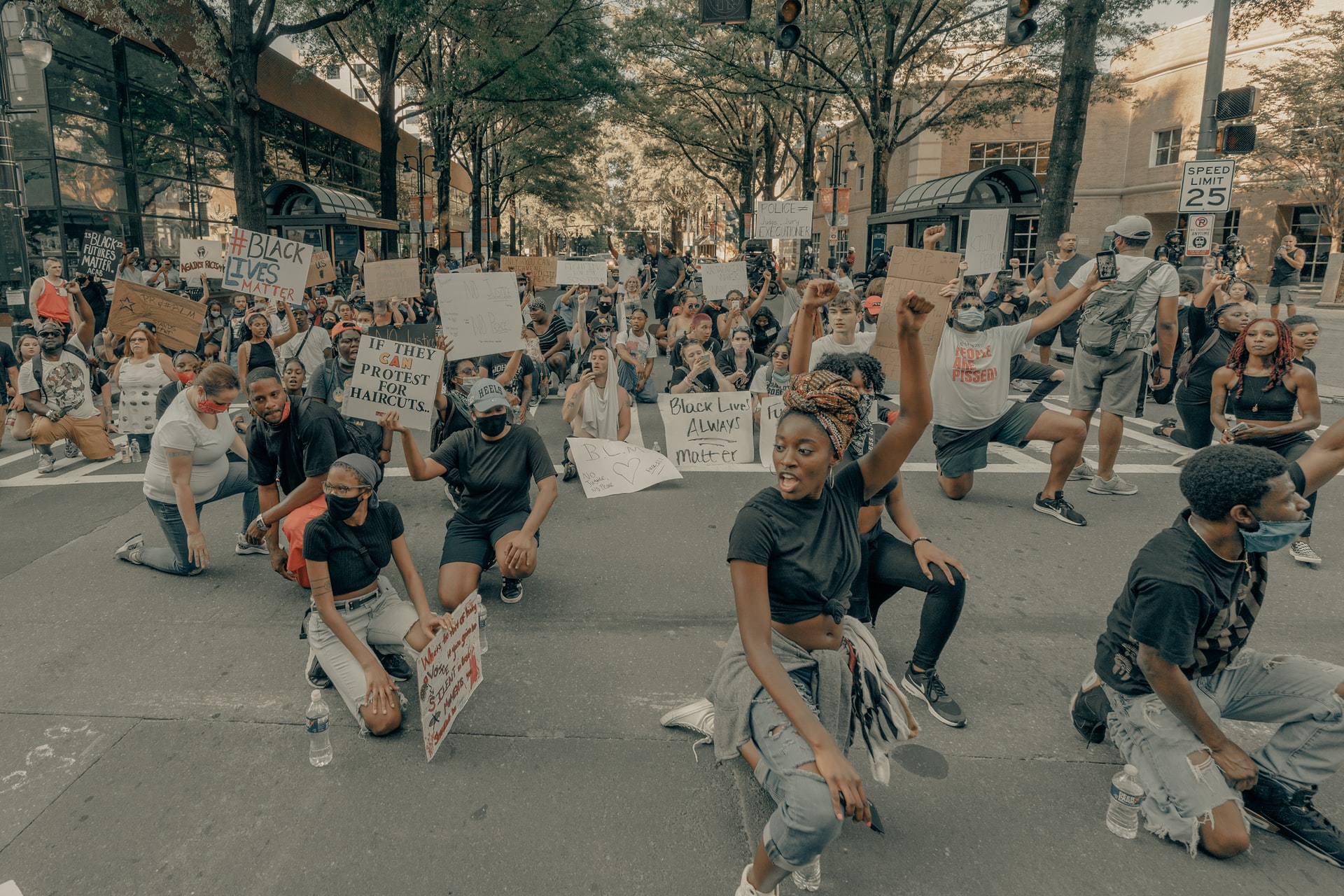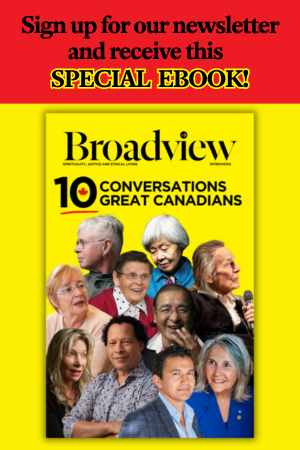Recently, my 12-year-old daughter found a list of names online. She recognized the last one: George Floyd. Reading the image’s caption, she learned the names belonged to Black people unjustly killed by police in the U.S. since 2014.
My daughter then asked me one of those questions only children can ask — rich with complexity while unapologetically straightforward.
“Mom,” she said, “if this is your list, will I have a list? And is George Floyd’s name on your list or mine? Because I won’t forget him.”
More on Broadview: Black lives matter. We have to do more.
For several moments I said nothing, muted by my own sadness and rage over the unravelling of the world that has led us to this point in my child’s life.
I also said nothing because in my despair, I fear I know the answer and do not wish to burden her with it.
The truth is that this “Black list,” as I call it, has existed for generations and so far, we have collectively failed to stop its perpetuity. Some on the list were killed by police; others for the crime of being Black while jogging, hitchhiking or walking home after buying Skittles.
My parents’ youth coincided with the civil rights movement. Many of the names on their Black list are in history books: Medgar Evers, Addie Mae Collins, Malcolm X, Martin Luther King Jr.
Rodney King’s name, the beating he endured and subsequent acquittal of the officers who delivered it probably started my list — and definitely changed my understanding of justice. But the name on my list that changed me was James Byrd Jr’s.
Byrd Jr. was a Black man who was tied to the back of a pickup truck in 1998 and dragged for nearly five kilometres along an asphalt road in Jasper, Texas. He was killed about halfway through this torture when his body hit a ditch, severing his arm and head. I was in my early 20s and the gruesomeness of Byrd Jr.’s slaying haunted me for years.
Over the years, my Black list grew exponentially. Despite its inherent brutality, it seemed to become the white noise overshadowed by other news and viral tweets. With too many names to properly acknowledge, we ushered in an era of hashtag memorials —#EricGarner, #TrayvonMartin, #MichaelBrown, #AhmaudArbery, #AtatianaJefferson, #BreonnaTaylor. While Dafonte Miller’s beating at the hands of an off-duty Toronto police officer became a high-profile case, other Canadians quietly made the list before him: #MachuarMadut, #PierreCoriolan, #AbdirahmanAbdi and #AbdurahmanIbrahimHassan. Still others, #D’AndreCampbell and #RegisKorchinski-Paquet, were added as the verdict in Miller’s case made headlines.
Despite generations of the Black list, many believed the problem to be one of circumstance rather than a systemic failing. As those who do not earn a hashtag or have the misfortune of not being filmed know, if George Floyd had survived, or had he not been filmed having the life crushed out of him, his name may not have mattered. But to humanity’s credit, when the horrific happened (again) on camera (again) — this time while we were all locked in our homes, with few distractions — we reacted. We collectively took a knee.
George Floyd’s death forced us to see this Black man as someone’s child. We could not hear him cry out for his mother and suggest that he must have done something to “deserve” this fate. There was a tear in the fabric of this rhetoric as all people felt connected to Black people’s anguish and fear. And as I look at my child, I can only hope that within this moment, the human connection that fuelled the outrage, protests and conversations needed for policy change remains a catalyst — what we need to begin the Black list’s end.
I am not sure I trust this connection to keep us focused on anti-Black racism instead of the next outlandish tweet or to protect people who look like me, my husband and my children from becoming hashtags. But as a Black mother, I must push past this weariness to answer my daughter. She needs to know if this is the end of the Black list or the beginning of hers.
***
Nicole Emanuel is a freelance communications professional, writer and the mother of two kids.
I hope you found this Broadview article engaging. The magazine and its forerunners have been publishing continuously since 1829. We face a crisis today like no other in our 191-year history and we need your help. Would you consider a one-time gift to see us through this emergency?
We’re working hard to keep producing the print and digital versions of Broadview. We’ve adjusted our editorial plans to focus on coverage of the social, ethical and spiritual elements of the pandemic. But we can only deliver Broadview’s award-winning journalism if we can pay our bills. A single tax-receiptable gift right now is literally a lifeline.
Things will get better — we’ve overcome adversity before. But until then, we really need your help. No matter how large or small, I’m extremely grateful for your support.
Jocelyn Bell
Editor/Publisher















